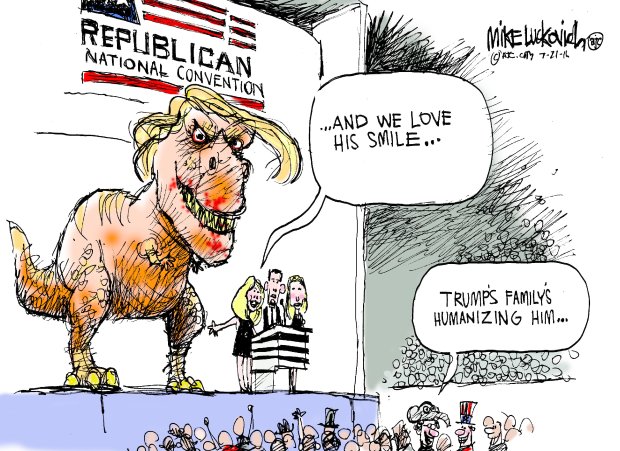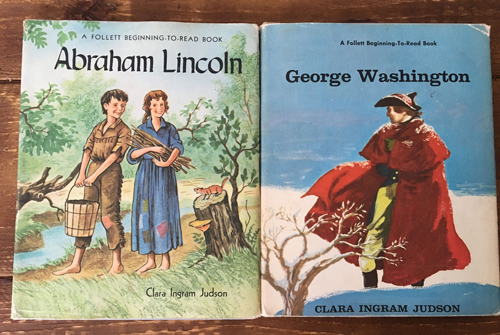I’ve written in the past about managed democracy, which is a political system that is ostensibly a democracy but which is actually being controlled and managed by some sort of oligarchy. As part of that I wrote in May 2016 about the remarkable fact that our two major political parties had two massively unpopular front-runners in the presidential election:
What we’re seeing is a symptom of managed democracy, a term usually aimed at Vladimir Putin’s Russia but which, many argue, describes the United States. In a paper about managed democracy in Russia, we find,
According to Tretyakov’s definition, managed democracy is a democracy (as there are elections, voters have alternative options, there is media freedom, leaders are changing), but it is corrected by the ruling class (or rather that part of it that holds power).
Put another way, this is why we can’t have nice things. We aren’t really in charge.
See also “They Aren’t Listening to Us” (May 2014) and “Rats and Lifeboats” (May 2017).
Today let me call your attention to “America’s Heart of Darkness” by Elizabeth Bruenig at the Washington Post. She writes that like the character Charles Marlow in Conrad’s novel, at least some Americans have seen the heart of darkness at the center of U.S. politics.
Marlow’s is a civic kind of going mad, where the veil is lifted from politics and what lies beneath makes participation in ordinary political life with a quiet mind impossible. By the time he returns, what once seemed placid and unremarkable seems sinister and false — and it is.
We’re about there, I think — perhaps not every single one of us, perhaps not just yet, but the conditions are right and the summer is long. The entire 2016 episode has been, in some sense, an introspective journey into America’s own innermost parts, with Donald Trump’s victory prompting a nervous self-inventory of what we value, whether our institutions work and to what degree we ought to trust one another. The full contents of that inward odyssey have yet to unfold. But on the question of institutional functioning, the news is unequivocally grim. Like Marlow, even after this particular chapter has ended, we are likely to find ourselves changed by what we’ve seen.
Whether national politics were ever really open and honest is a debatable point, of course. Before we went to a primary system, the old method of choosing presidential nominees at big, messy national conventions was often accused of being corrupt and undemocratic. Deals were made in smoke-filled rooms and, voila , here’s your ticket. But we got some pretty good presidents out of those smoke-filled rooms. I’m old enough to remember watching those conventions on television, and in retrospect they seem more honest and transparent than what we’ve got now.
Bruenig writes (as I have written in the past) that we may never know if the Russians really did change the outcome of the election. And we still don’t know if Donald Trump was conciously aware of and complicit in the Russian interference. But those are secondary considerations.
The primary things are these: It just wasn’t that hard for a foreign power to tinker with our deliberative democratic process, which suggests that it just isn’t that hard, full stop, for anyone to tinker with our deliberative democratic process. And if Trump’s campaign played along, those who benefited when he won don’t really seem to mind. Republicans will issue all sorts of official-sounding tweets and news releases decrying the subversion of America’s hallowed institutions, but they’ve got their tax cuts and Supreme Court seats, and they’re not going to initiate impeachment proceedings or primary Trump come 2020. A neutral observer couldn’t be blamed for concluding that the rich and powerful people who contend for control of the country don’t much care how public offices wind up in their hands, so long as they do.
Donald Trump is an abomination. He’s a walking moral cesspool. He is clearly unfit for office. He’s safe, for now, because the elites find him useful. Because he is also a moron he probably doesn’t realize he’s just a tool. But he is.
And this is true across the board. Those emails the Russians loosed upon the electorate were damning precisely because they revealed a similar scheme operating in miniature during the Democratic primary campaign: The supposedly neutral DNC functioned as more or less a Clinton campaign organ, subsisting off Clinton campaign funds and musing behind the scenes about targeting then-primary contender Bernie Sanders for being a secular Jew, how best to discipline his campaign for complaining about the DNC’s partiality and, ironically, how to properly dispel the appearance of a DNC conspiracy against Sanders.
The gravity and legality of the two exercises in meddling differ, certainly. But they both operate to wound our faith in democratic legitimacy.
A lot of commenters to this article are sputtering about false equivalence. But of course I agree with Bruenig. Hillary Clinton’s nomination was a done deal months before the primaries started, a fact that has been publicly confirmed in many ways. What the Democrats did to railroad Clinton’s nomination makes the smoke-filled rooms at the old national conventions seem downright guileless and innocent.
In particular, it was ghastly to me the way that a generation of left-leaning voters was relentlessly punched down on for month after month because they refused to accept the decision of the powers that be, and to this day most of the progressive young folks I communicate with are, at best, massively ambivalent about the Democratic Party. They don’t like it much, and they don’t trust it, but most have accepted they have no alternative but to work through the Democrats to defeat Trumpism. A loud minority still refuse to have anything to do with Democrats, however.
So, damage was done. The sputterers need to realize and admit this. A big reason a lot of us who are Democratic voters are twitchy about “centrism” and “pragmatism” is that these are code words for accepting the manipulation. And let’s not kid ourselves that if Hillary Clinton were president now the government would be working for us. It would be less awful in many ways, yes, and we’d have gotten much better SCOTUS nominations. But anything we, the people might want that the elites don’t want to give us would still be off the table.
Mass media is complicit in all this, of course. News coverage helped Trump become acceptable as POTUS. They played him up because he was good for ratings. And then they normalized him. Television political coverage never goes deeper than the superficial and the sound bite, and most people get nearly all their information on candidates from television (or, worse, social media). The well-known information on Trump’s long history of dishonest business deals and ties to the mob were never explained to the American television news audience.
See an old Salon article from 2006, by Ted Morgan: “This isn’t how a democracy should work.”
Our news media, television in particular, work at two levels simultaneously. One level is cultural. This is where market-driven news accentuates its entertainment value, seeking to maximize audience or readership by grabbing attention with all the devices common to entertainment. News stories are brief, dramatic fragments; they accentuate eye-catching imagery, conflict, and personalities. They play on our emotions, but tell us almost nothing about why the world is the way it is.
The other level is ideological, or political. This is where the mass media are corporate institutions that reflect the consensual and competing views of elites who dominate our politics. This is where Democrats and Republicans “debate” political issues, where they tell us how to interpret the world. It is definitely not where more fundamentally critical, or outsider, views are taken seriously.
News media set the parameters of allowable political thought, and that has become a very, very narrow range of thought. And as much as I do like to watch the nightly MSNBC lineup for the latest dirt on Trump, they’re in on it, too, at least as far as the Democrats are concerned.
So here we are. We have a monster for a president, and Washington collectively lacks the political will to admit it and remove him from office. Yesterday the cable shows were all playing a tape of Michael Cohen and Trump talking about how they would hush up an affair with a model. Watch this change nothing. Today there are headlines about how Trump plans to go forward with 25 percent tariffs on close to $200 billion in foreign-made automobiles, and “advisers” are scrambling to stop him. But, bleep it, the Constitution gives Congress the power to determine tariffs, not the president. There is obviously no national security issue that justifies Trump’s tariff policy.
Where is Congress? Not only do they not remove him from office, they step aside and let him do whatever he wants, no matter how damaging it is. It may be that the only thing that will stop him is if the monied elites who actually run things decide he’s more trouble than he’s worth. Then something nasty will be slipped into Trump’s filet-o-fish sandwich, because Mike Pence is a model tool, a tool’s tool. A Disney animatronic president couldn’t be a more reliable tool.
I can remember earlier times, when our revered historical figures were presented as virtuous and wise. They were honest and kind and never told lies. And yeah, a lot of that amounted to glossing over a lot of flaws. But that was the ideal that we at least paid lip service to. With Trump, there are no ideals and no virtues, just endless sleaze.
Back to Bruenig.
This particular horror — Trump and his failures, whatever ridiculous thing he has said or done today, whatever international incident he causes on Twitter tomorrow, however authentic the next panic is — will pass. What will last is the frank revelation of a point that, while ugly and dark, is at least true: You really don’t have the choices you ought to in American democracy, because of decisions made without your consent by people of wealth and power behind closed doors. It’s possible to continue to participate in a democracy after that. But not with a quiet mind.
I hold on to a faint hope that American democracy can be reformed and given back to the people. Campaign finance reform, voting rights guarantees, ending political gerrymandering, and some other steps would do it, and those things are possible. At least, they aren’t like spinning straw into gold or walking on water. But it’s going to take a hell of a fight.


